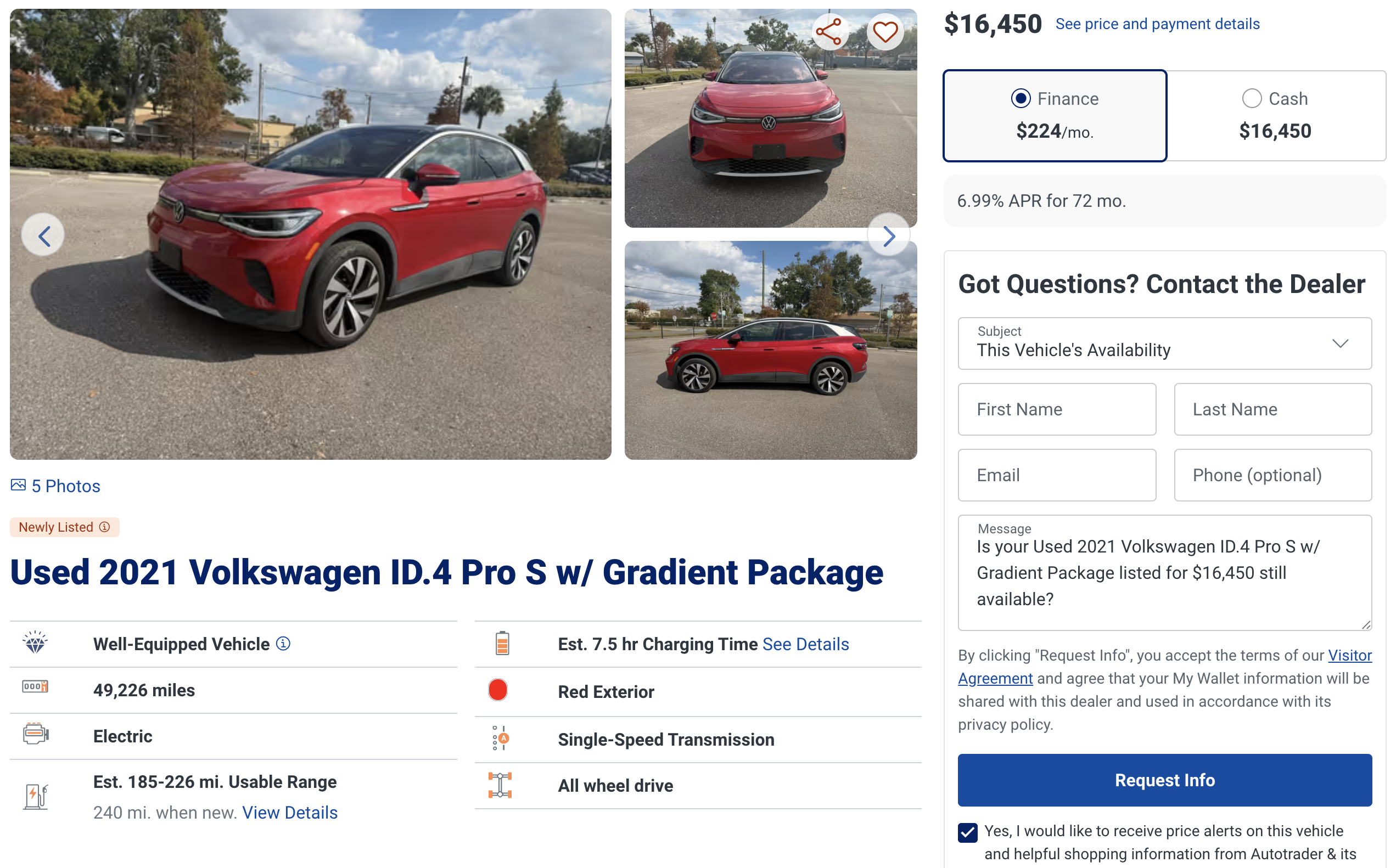Sign up for daily news updates from CleanTechnica on email. Or follow us on Google News!
On September 23, 2024, the Biden administration announced sweeping new regulations that would ban software and hardware developed by Chinese companies from being installed on internet-connected cars sold in the United States. According to the New York Times, the government is justifying this latest move on national security grounds. It is intended to prevent Chinese intelligence agencies from monitoring the movements of Americans or using the vehicles’ electronics as a pathway to mount digital attacks on the US electric grid or other critical infrastructure.
The new policy follows the same logic that resulted in the ban on Huawei telecommunications equipment and the investigations into Chinese-made cranes operating at American ports. Combined with the effort by Congress to force TikTok to cut its ties with its Chinese owners, the initiative is a major addition to the administration’s efforts to seal off what it views as major cyber vulnerabilities for the United States. In a press release, the Biden administration said that Chinese automakers are seeking to dominate connected vehicle technologies in the United States and globally, posing new threats to national security, including through automotive supply chains.
Today, President Biden is announcing strong action to protect America from the national security risks associated with connected vehicle technologies from countries of concern. The Department of Commerce is issuing a notice of proposed rule making (NPRM) that would, if finalized as proposed, prohibit the sale or import of connected vehicles that incorporate certain technology and the import of particular components themselves from countries of concern, specifically the People’s Republic of China and Russia.
The announcement is the next step in a process announced in February, 2024. This NPRM incorporates public feedback submitted in response to the Department’s advance notice of proposed rule making issued on March 1, 2024, which sought public comment on the national security risks associated with certain technologies used in connected vehicles.
Connected vehicles provide many benefits — from promoting vehicle safety to assisting drivers with navigation — but they also pose new and growing threats. These technologies include computer systems that control vehicle movement and collect sensitive driver and passenger data as well as cameras and sensors that enable automated driving systems and record detailed information about American infrastructure. Now more than ever, vehicles are directly connected into our country’s digital networks.
The Verge reports the administration believes that vehicles with hardware and software from China pose an “acute” threat to the US’s national security, including the potential for “sabotage and surveillance, such as remotely disabling a vehicle in the middle of the road.” The new rules would cover anything that connects a vehicle to the outside world, such as Bluetooth, Wi-Fi, cellular, and satellite components. It also addresses concerns that technology like cameras, sensors, and onboard computers could be exploited by foreign adversaries to collect sensitive data about US citizens and infrastructure. The rules are the result of an investigation launched earlier this year by the Commerce Department into connected vehicle software produced in China and other nations that are considered antagonistic to the US. They would force American automakers and suppliers to remove Chinese made software and hardware from their vehicles in the coming years.
The proposed ban would apply to cars, trucks, and buses used on public roads, but not those confined to off-road use in the agriculture sector. That distinction makes little sense, as an internet-connected tractor has the same ability to create security breaches as any other connected vehicle, but if you are seeking consistency in government policies, you will often be disappointed. Perhaps the farm implements industry does not employ as many lobbyists as the automotive industry does.
The New York Times says the new rules effectively drop a digital iron curtain between the world’s two largest economies, which only two decades ago were declaring that the internet would bind them together. The announcement was notable because such cars had barely begun to enter the US market, and Biden explicitly cast it as a way of keeping jobs in America. The Verge chimes in by saying, “Good luck getting a cheap Chinese EV now.”
Chinese Software For Connected Cars
“Many of these technologies collect large volumes of information on drivers,” National Security Advisor Jack Sullivan told reporters prior to the announcement. They also connect constantly with personal devices, with other cars, with critical infrastructure, and with the original manufacturers of vehicles and components. “For that reason, connected vehicles and the technology they use bring new vulnerabilities and threats, especially in the case of vehicles or components developed in the P.R.C. and other countries of concern.” He referred to made reference to the US concerns about what is called Volt Typhoon, which American intelligence officials and the F.B.I. say is a Chinese effort to insert code into American power systems, water pipelines, and other critical infrastructure. They fear that in a time of crisis — such as if China attacked Taiwan, the code could be deployed to cripple American military bases, slowing their response.
The new rules could mirror similar provisions in the regulations that govern federal EV tax credits. Those rules prevent the credit from being applied to any vehicles with battery components made in China. The administration has also proposed a 100% tariff on Chinese vehicles in an effort to make them too expensive to sell in the US. There is considerable concern that cheap cars for China could devastate the domestic auto industry. The Autonomous Vehicle Industry Association, which represents automakers and tech firms working on self-driving cars, commended the Biden administration for taking this position. “American national security is foundational,” said its CEO, Jeff Farrah, “The autonomous vehicle industry has worked constructively with federal agencies and stakeholders to provide critical information about connected vehicles and how the AV industry works to ensure national security.”
Richard Fontaine, the chief executive of the Center for a New American Security, told the New York Times in an interview that the new policy is an expansion of the US effort to create a “high fence around a small yard” of strategically important goods. “On China tech, it’s clear that the ‘small yard’ is growing in size and will continue no matter who wins the election in November. Policymakers of all stripes are increasingly worried about the national security risks that attend Chinese technology, particularly when they imagine what might happen in a confrontation.”
Under the proposed rule, Russian software would also be included, although the Russians produce almost nothing that could be banned. “The precedent is significant and I think it just reflects the complexities of a world where a lot of connected devices can be weaponized,” said Brad Setser, a senior fellow at the Council on Foreign Relations. “The security competition and rivalry between the US and China is increasing. So, certainly, there is a possibility that this precedent could expand over time.”
Chinese-Made Software Is Tracking Our Kids!
Gina Raimondo, the Secretary of Commerce, acknowledged that few Chinese or Russian vehicles were on US roads now, but said that the administration wanted to take proactive measures to “secure the American people, including our children, from potential surveillance.” She said foreign powers like China could use their software in connected vehicles to collect data on where drivers live and where their children go to school, among other things. In an extreme situation, a foreign adversary could shut down or take control of all of its vehicles operating in the United States, a move that could cause crashes and block roads. “This is not about trade or economic advantage,” she said. “This is a strictly national security action.”
Canadian policymakers are expected to announce a similar ban on Chinese-made software and hardware for vehicles soon. It has already imposed its own 100% tariff on Chinese-made cars. “The short answer is absolutely,” Finance Minister Chrystia Freeland told reporters this week when asked if Canada was considering following the US move. “Our government has made very clear that we take really seriously intentional Chinese overcapacity and we take very seriously the security threat from China.” We can anticipate the EU will also soon follow suit.
The Takeaway
Imposing high tariffs on Chinese-made cars is silly or smart, depending on your worldview. The digital world is full of risks from hackers, whether they are attempting to influence an election or to gain access to financial and health records. Which is not to say that China has not been super aggressive at enlisting its citizens working abroad to spy for the mother country.
All of this focus on China could blind us to threats from other nations and private actors. Exploding pagers in Lebanon last week provided a graphic example of how exposed we all are to threats made possible by digital technology. The US government has a duty to protect its citizens from harm imposed by a foreign country. At the same time, it needs to be aware that some automakers could use this new “get tough” attitude towards China to give themselves cover from competitors who might disrupt their business model, so they can continue to ease on down the road for another decade or two.

Have a tip for CleanTechnica? Want to advertise? Want to suggest a guest for our CleanTech Talk podcast? Contact us here.
Latest CleanTechnica.TV Videos
CleanTechnica uses affiliate links. See our policy here.
CleanTechnica’s Comment Policy





